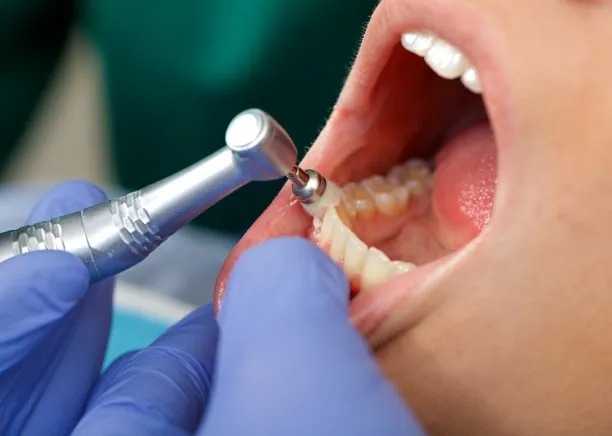Summary: Dental filling procedures are essential for restoring the health of cavities in teeth. However, both pre- and post-operative care play crucial roles in ensuring optimal oral health and a smooth recovery. This article explores essential precautions like understanding the procedure, managing pain and discomfort, adhering to dietary restrictions, and maintaining oral hygiene effectively. By following these guidelines, patients can enhance their recovery experience and maintain optimal dental health long-term.
1. Understanding the Dental Filling Procedure

Before undergoing a dental filling procedure, it is vital to have a clear understanding of what the process entails. This includes knowing the materials used for fillings, as these can vary from amalgam to composite resins. Discussing these options with your dentist can help you make an informed decision that is best suited for your oral health needs.
Patients should also inquire about the specific steps involved in the procedure. Familiarizing yourself with the process can reduce anxiety related to unfamiliarity. This includes knowing that the dentist will first numb the area to minimize discomfort and then remove decayed tissue before placing the filling.
Lastly, understanding what to expect from the recovery period can prepare patients and help set realistic expectations. Thorough discussions with your dentist about potential side effects or symptoms to watch for will contribute to a smoother recovery process.
2. Preparing for the Procedure in Advance
Preparation plays a critical role in achieving the best outcomes from a dental filling. One essential precaution is to ensure you are well-rested before the appointment. Lack of sleep can heighten sensitivity and anxiety, making the procedure feel longer or more uncomfortable than it needs to be.
It is also wise to refrain from consuming certain foods and beverages before the procedure. Dentists often recommend avoiding caffeine or high-sugar items, which can increase sensitivity and discomfort. Drinking water is encouraged, but it鈥檚 best to follow your dentists specific advice.
Lastly, it may be necessary to arrange for transportation. Depending on the sedation methods used during your filling, you may feel groggy or disoriented post-procedure. Having a friend or family member to drive you home ensures your safety and comfort during recovery.
3. Post-Procedure Care Instructions
After receiving dental fillings, it鈥檚 essential to adhere to the dentists post-care instructions. Initially, you may experience numbness in the mouth due to anesthesia. It is important to avoid biting your tongue or cheek during this period. Wait until the numbness wears off before consuming any food or drinks.
Managing pain or discomfort following the procedure is another essential precaution. Your dentist may prescribe pain relief or recommend over-the-counter medication. Following the dosage instructions carefully will help in minimizing pain while preventing adverse effects from excess medication.
Moreover, closely monitoring your dental fillings is crucial in the days following the procedure. If you notice unusual pain, sensitivity, or visible changes in the filling, it鈥檚 important to contact your dentist promptly. Early intervention can prevent further complications.
4. Maintaining Oral Hygiene Post-Filling
Good oral hygiene is critical for maintaining the integrity of dental fillings and promoting overall oral health. It is recommended to resume brushing and flossing gently after 24 hours. Patients should use a soft-bristled toothbrush to avoid irritating the sensitivity that may follow a filling procedure.
Using mouthwash can also help keep the area clean, but patients should choose alcohol-free options, as alcohol can cause dryness and irritation in the affected area. Mindfully adjusting your oral care routine will aid in promoting healing and preventing further decay.
Lastly, regular dental check-ups are essential even after a filling. Maintaining proactive dental visits ensures any potential issues are spotted early, keeping both your fillings and overall oral health in check. Consistency in your dental care fosters long-term benefits.
Summary:
In summary, understanding the dental filling procedure, preparing adequately beforehand, and following proper post-procedure care and hygiene techniques play essential roles in preventing complications and ensuring a smooth recovery. These precautions not only enhance immediate recovery but also contribute to lasting oral health.
This article is compiled by Vickong Dental and the content is for reference only.
Vickong Dental
Vickong Dental is a large medical group established in Hong Kong in 2008 by professors from well-known medical universities in Guangdong and Hong Kong, as well as medical doctors from key national '985' universities (including Master's supervisors and senior professors). The chain of branches brings together expert dentists with PhDs and Master's degrees from Hong Kong and Mainland China, committed to providing high-quality dental treatment.
"Vickong Dental Practices the University Motto of 'Healing and Serving Society,' with a Stable Operation for Sixteen Years. It Has Been honored with Hong Kong Enterprise Leaders's Choice,' and is a Global Trusted Implant Center for the Nobel Implant System. Recommended by Hong Kong Metro Broadcast and Guangdong Television, it Serves Customers from Over Thirty Countries and Regions, Gaining the Trust and Favor of Citizens from the Guangdong-Hong Kong-Macau Greater Bay Area and Surrounding Cities.

Thousands of customers' unanimous praise
The most recognized and highly recommended dental service by customers in the Guangdong-Hong Kong-Macau Greater Bay Area
We Ensure You Receive Detailed Care and Attention Here
Hong Kong standards, Shenzhen prices, Your Trusted English-speaking dentists

Vickong Dental Medical-Grade Instrument Disinfection Process
Vickong Dental Medical-Grade Instrument Disinfection Process

Vickong Dental Chain: A Warm and Comfortable Environment for Treatment






Appointment Hours

Q&A
Why choose Vickong Dental?
Vickong Dental practices the university motto 「Medicine to Benefit Society」, with each branch bringing together highly qualified dentists with doctoral and master’s degrees from Hong Kong and the Mainland, and has maintained seventeen years of steady operation。Recipient of 「2024 Hong Kong Enterprise Leaders Brand」, 「2025 Hong Kong Enterprise Leaders Brand」, a Nobel Biocare Global Trusted Implant Center, and a brand recommended by Metro Radio Hong Kong and Guangdong TV。
To date, we have served customers from more than thirty countries and regions,earning exceptionally high word-of-mouth recognition and trusted recommendations from residents across the Guangdong-Hong Kong-Macao Greater Bay Area and surrounding cities
We have eight major branches in Zhuhai、Shenzhen,and a consultation and service assurance center in Hong Kong,so you can book a free consultation at any time for any questions,which is very reassuring.
If I do not accept the quotation after the CT scan, will I be charged??
No! As long as the actual treatment has not started, you will not be charged any fees.
Will there be any additional charges during the treatment process?
No, there won’t be any additional charges. Before treatment begins, we will clearly explain the treatment plan and its corresponding fees. Only after the patient agrees and signs the consent form will we proceed with the dental service.
Can I pay in Hong Kong dollars?
Yes. Vickong Dental accepts payment in Hong Kong dollars. The amount will be converted based on the exchange rate of the day, and the applicable rate will be clearly communicated to you in advance.
Can I reschedule my appointment at any time?
Yes. Please contact us via **WeChat** or **WhatsApp** as early as possible, providing your original appointment time and details, along with your preferred new date and time slot for rescheduling.













